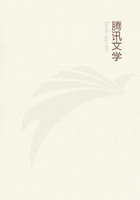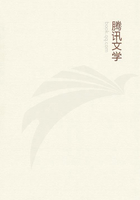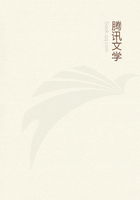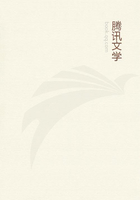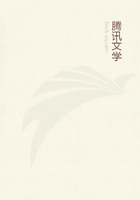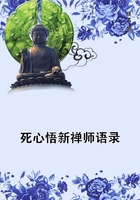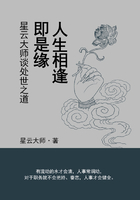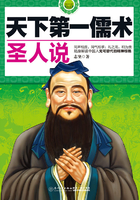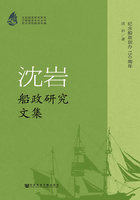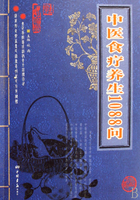But indeed, if chance brought him into conversation with any one possessed of an art, and using it for daily purposes of business, he never failed to be useful to this kind of person. For instance, stepping one time into the studio of Parrhasius the painter, and getting into conversation with him-- {alla men kai} . . . "But indeed the sphere of his helpfulness was not circumscribed; if," etc.
For Parrhasius of Ephesus, the son of Evenor and rival of Zeuxis, see Woltmann and Woermann, "Hist. of Painting," p. 47 foll.; Cobet, "Pros. Xen." p. 50 (cf. in particular Quint. XII. x. 627). At the date ofconversation (real or ideal) he may be supposed tohave been a young man.
I suppose, Parrhasius (said he), painting may be defined as "a representation of visible objects," may it not? That is to say, by means of colours and palette you painters represent and reproduce as closely as possible the ups and downs, lights and shadows, hard and soft, rough and smooth surfaces, the freshness of youth and the wrinkles of age, do you not?
Reading with Schneider, L. Dind., etc., after Stobaeus, {e graphike estin eikasia}, or if the vulg. {graphike estin e eikasia}, trans. "Painting is the term applied to a particular representation," etc.
You are right (he answered), that is so.
Soc. Further, in portraying ideal types of beauty, seeing it is not easy to light upon any one human being who is absolutely devoid of blemish, you cull from many models the most beautiful traits of each, and so make your figures appear completely beautiful?
Cf. Cic. "de Invent." ii. 1 ad in. of Zeuxis; Max. Tur. "Dissert." 23, 3, ap. Schneider ad loc.
Parrh. Yes, that is how we do.
Or, "that is the secret of our creations," or "our art of composition."Well, but stop (Socrates continued); do you also pretend to represent in similar perfection the characteristic moods of the soul, its captivating charm and sweetness, with its deep wells of love, its intensity of yearning, its burning point of passion? or is all this quite incapable of being depicted?
Nay (he answered), how should a mood be other than inimitable, Socrates, when it possesses neither linear proportion nor colour, nor any of those qualities which you named just now; when, in a word, it is not even visible?
Lit. "symmetry." Cf. Plin. xxxv. 10, "primus symmetriam picturae dedit," etc.
Soc. Well, but the kindly look of love, the angry glance of hate at any one, do find expression in the human subject, do they not?
Or, "the glance of love, the scowl of hate, which one directs towards another, are recognised expressions of human feeling." Cf. the description of Parrhasius's own portrait of Demos, ap. Plin. loc. cit.
Parrh. No doubt they do.
Soc. Then this look, this glance, at any rate may be imitated in the eyes, may it not?
Undoubtedly (he answered).
Soc. And do anxiety and relief of mind occasioned by the good or evil fortune of those we love both wear the same expression?
By no means (he answered); at the thought of good we are radiant, at that of evil a cloud hangs on the brow.
Soc. Then here again are looks with it is possible to represent? Parrh. Decidedly.
Soc. Furthermore, as through some chink or crevice, there pierces through the countenance of a man, through the very posture of his body as he stands or moves, a glimpse of his nobility and freedom, or again of something in him low and grovelling--the calm of self-restraint, and wisdom, or the swagger of insolence and vulgarity?
You are right (he answered).
Soc. Then these too may be imitated? No doubt (he said).
Soc. And which is the pleasanter type of face to look at, do you think --one on which is imprinted the characteristics of a beautiful, good, and lovable disposition, or one which bears the impress of what is ugly, and bad, and hateful?
For this theory cp. Ruskin, "Mod. P." ii. 94 foll. and indeed passim.
Parrh. Doubtless, Socrates, there is a vast distinction between the two. At another time he entered the workshop of the sculptor Cleiton,
and in course of conversation with him said:
An unknown artist. Coraes conj. {Kleona}. Cf. Plin. xxxiv. 19; Paus. v. 17, vi. 3. He excelled in portrait statues. See Jowett, "Plato," iv.; "Laws," p. 123.
You have a gallery of handsome people here, Cleiton, runners, and wrestlers, and boxers, and pancratiasts--that I see and know; but how do you give the magic touch of life to your creations, which most of all allures the soul of the beholder through his sense of vision?

